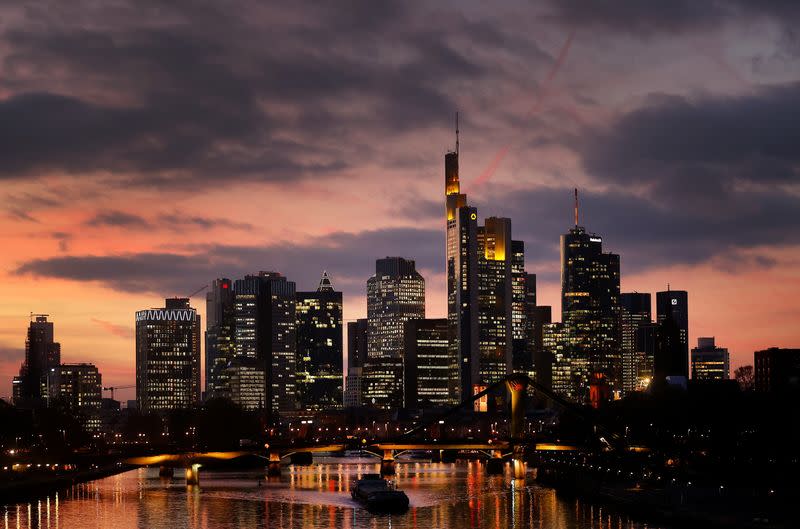Exclusive-Hopes rise Germany could skirt recession this year

By Holger Hansen
BERLIN (Reuters) -Germany is set to dodge a widely expected recession this year, a source told Reuters on Wednesday, adding to a chorus of voices predicting a brighter outlook for Europe's biggest economy as energy prices fall.
Facing soaring gas prices due to the war in Ukraine and supply bottlenecks, consumer prices exploded last year, and the government and economists saw no way around recession.
However, a 200-billion-euro relief package to shield consumers from surging energy prices, a mild winter and a readiness to save energy have changed the picture.
The government now expects price-adjusted growth of 0.2% this year, way more optimistic than an autumn forecast for a 0.4% contraction, according to a draft of the economy ministry's annual report, a source told Reuters.
The ministry's report, due to be published on Jan. 25, also envisages growth of 1.8% next year.
The estimates have not yet been finalised, said the source. The ministry declined to comment.
The more optimistic outlook chimes with comments made by Chancellor Olaf Scholz, who said on Tuesday he was certain that Germany would avoid recession.
"I'm absolutely convinced that this will not happen that we are going into a recession," he told Bloomberg TV, adding that efforts to dampen the effects of energy prices rises had paid off.
While weaning itself off Russian energy, on which it had relied for years, Germany also capped electricity and gas prices for citizens and companies with a package that runs until 2024.
Benchmark Dutch front-month European gas prices have fallen almost 85% since their peak of over 340 euros per megawatt hour (MwH) last August to around 53 euros/MWh as countries managed to build huge gas reserves ahead of winter.
Unusually mild temperatures mean reserves have not been significantly drawn on so far, and data from smart thermometers installed in homes show citizens are conserving energy.
"Despite all the prophecies of doom, the German economy fared better than expected," VP Bank economist Thomas Gitzel said of Statistics Office figures showing that economic output stagnated in the final quarter of 2022 and grew 1.9% over the full year.
"The German economy could therefore continue to develop better than feared," he said.
The government will also revise down its inflation forecast for this year to 6.0% and expects it to ease further in 2024 to 2.8%, the source familiar with the economy ministry report said.
That is in line with comments by Finance Minister Christian Lindner, who said on Tuesday that inflation this year was expected to be lower than the government's autumn forecast of 7.0% due in part to the fall in energy prices.
German government economic adviser Monika Schnitzer told Reuters earlier this month that domestic inflation had probably peaked as global energy prices have fallen. Schnitzer said she expected natural gas prices to fall further this year.
(Reporting by Holger Hansen, Writing by Rachel More and Madeline ChambersEditing by Mark John, Miranda Murray and Gareth Jones)

 Yahoo Finance
Yahoo Finance 